Regulation of International Financial Markets and International Banking
This research group analyses causes and consequences of banks' international activities and the regulatory framework they operate in.
Internationally active banks can facilitate an efficient international allocation of capital and provide channels for international risk sharing. But they can also be a source of financial instabilities themselves, thus contributing to international contagion and risk-shifting. This is one reason for the current re-regulation of international banking.
The research group contributes to the literature in three ways. First, the group empirically analyses the channels through which shocks are transmitted by internationally active banks. Second, the group analyses the build-up of aggregate imbalances in integrated banking markets and resulting consequences for the real economy. Third, the group analyses the impact of changes in banking supervision and regulation on (inter)national activities of banks, with a special focus on the European integration process.
IWH Data Project: International Banking Library
Research Cluster
Economic Dynamics and StabilityYour contact

Mitglied - Department Financial Markets
EXTERNAL FUNDING
07.2017 ‐ 12.2022
The Political Economy of the European Banking Union
European Social Fund (ESF)
Causes of national differences in the implementation of the Banking Union and the resulting impact on financial stability.
01.2015 ‐ 12.2017
Dynamic Interactions between Banks and the Real Economy
German Research Foundation (DFG)
Refereed Publications
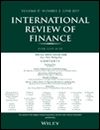
Monetary Policy through Exchange Rate Pegs: The Removal of the Swiss Franc‐Euro Floor and Stock Price Reactions
in: International Review of Finance, No. 4, 2021
Abstract
The Swiss National Bank abolished the exchange rate floor versus the Euro in January 2015. Using a synthetic matching framework, we analyze the impact of this unexpected (and therefore exogenous) policy change on the stock market. The results reveal a significant level shift (decline) in asset prices following the discontinuation of the minimum exchange rate. As a novel finding in the literature, we document that the exchange‐rate elasticity of Swiss asset prices is around −0.75. Differentiating between sectors of the Swiss economy, we find that the industrial, financial and consumer goods sectors are most strongly affected by the abolition of the minimum exchange rate.

Macroprudential Policy and Intra-Group Dynamics: The Effects of Reserve Requirements in Brazil
in: Journal of Corporate Finance, December 2021
Abstract
We examine whether liquidity dynamics within banking groups matter for the transmission of macroprudential policy. Using matched bank headquarters-branch data for identification, we find a lending channel of reserve requirements for municipal branches whose headquarters are more exposed to the policy tool. The result is driven by the 2008–2009 crisis and is stronger for state-owned branches, especially when being less profitable and liquidity constrained. These findings suggest the presence of cross-regional distributional effects of macroprudential policies operating via internal capital markets.

Global Syndicated Lending during the COVID-19 Pandemic
in: Journal of Banking and Finance, December 2021
Abstract
This paper examines the pricing of global syndicated loans during the COVID-19 pandemic. We find that loan spreads rise by over 11 basis points in response to a one standard deviation increase in the lender's exposure to COVID-19 and over 5 basis points for an equivalent increase in the borrower's exposure. This implies excess interestof about USD 5.16 million and USD 2.37 million respectively for a loan of average size and duration. The aggravating effect of the pandemic is exacerbated with the level of government restrictions to tackle the virus's spread, with firms’ financial constraints and reliance on debt financing, whereas it is mitigated for relationship borrowers, borrowers listed in multiple exchanges or headquartered in countries that can attract institutional investors.
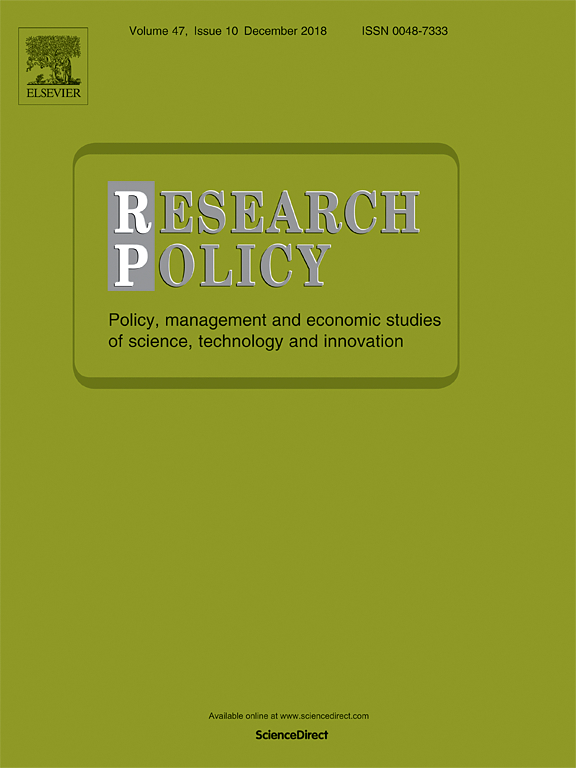
Does Gender Affect Innovation? Evidence from Female Chief Technology Officers
in: Research Policy, No. 9, 2021
Abstract
In this paper, we examine the impact of female Chief Technology Officers (CTOs) on corporate innovation. We find that firms with female CTOs are more innovative (as captured by both patent counts and patent citations) than firms with male CTOs. This effect is more pronounced for firms with a stronger innovation-supportive culture, firms with female CEOs, and when female CTOs are more powerful. Using mediation analyses, we further validate that female CTOs’ transformational leadership style is a plausible mechanism through which they affect innovation positively.
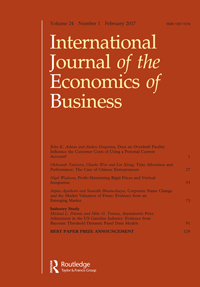
Quid Pro Quo? Political Ties and Sovereign Borrowing
in: Journal of International Economics, November 2021
Abstract
Do stronger political ties with a global superpower improve sovereign borrowing conditions? We use data on voting at the United Nations General Assembly along with foreign aid flows to construct an index of political ties and find evidence that suggests stronger political ties with the US is associated with both better sovereign credit ratings and lower yields on sovereign bonds especially among lower income countries. We use official heads-of-state visits to the White House and coalition forces troop contributions as additional measures of the strength of political ties to further reinforce our findings.
Working Papers
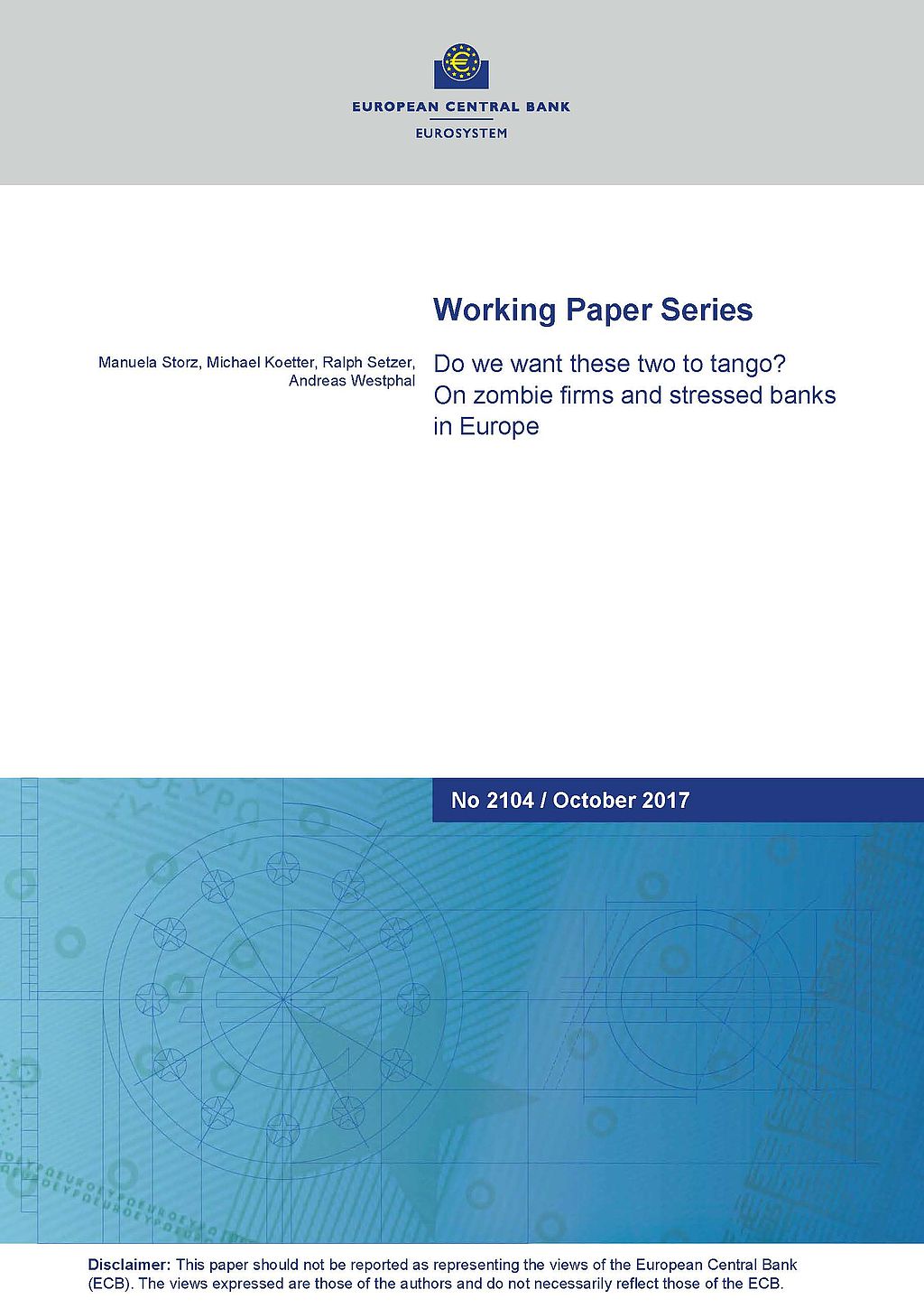
Do We Want These Two to Tango? On Zombie Firms and Stressed Banks in Europe
in: ECB Working Paper, 2017
Abstract
We show that the speed and type of corporate deleveraging depends on the interaction between corporate and financial sector health. Based on granular bank-firm data pertaining to small and medium-sized enterprises (SME) from five stressed and two non-stressed euro area economies, we show that “zombie” firms generally continued to lever up during the 2010–2014 period. Whereas relationships with stressed banks reduce SME leverage on average, we also show that zombie firms that are tied to weak banks in euro area periphery countries increase their indebtedness even further. Sustainable economic recovery therefore requires both: deleveraging of banks and firms.
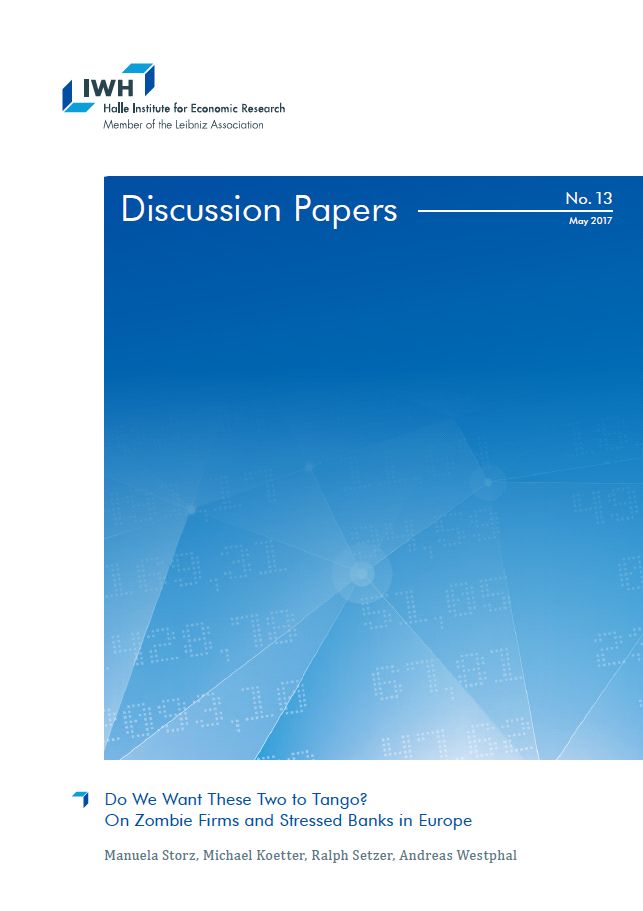
Do We Want These Two to Tango? On Zombie Firms and Stressed Banks in Europe
in: IWH Discussion Papers, No. 13, 2017
Abstract
We show that the speed and type of corporate deleveraging depends on the interaction between corporate and financial sector health. Based on granular bank-firm data pertaining to small and medium-sized enterprises (SME) from five stressed and two non-stressed euro area economies, we show that “zombie” firms generally continued to lever up during the 2010–2014 period. Whereas relationships with stressed banks reduce SME leverage on average, we also show that zombie firms that are tied to weak banks in euro area periphery countries increase their indebtedness even further. Sustainable economic recovery therefore requires both: deleveraging of banks and firms.

Inside Asset Purchase Programs: The Effects of Unconventional Policy on Banking Competition
in: ECB Working Paper Series, No. 2017, 2017
Abstract
We test if unconventional monetary policy instruments influence the competitive conduct of banks. Between q2:2010 and q1:2012, the ECB absorbed Euro 218 billion worth of government securities from five EMU countries under the Securities Markets Programme (SMP). Using detailed security holdings data at the bank level, we show that banks exposed to this unexpected (loose) policy shock mildly gained local loan and deposit market shares. Shifts in market shares are driven by banks that increased SMP security holdings during the lifetime of the program and that hold the largest relative SMP portfolio shares. Holding other securities from periphery countries that were not part of the SMP amplifies the positive market share responses. Monopolistic rents approximated by Lerner indices are lower for SMP banks, suggesting a role of the SMP to re-distribute market power differentially, but not necessarily banking profits.
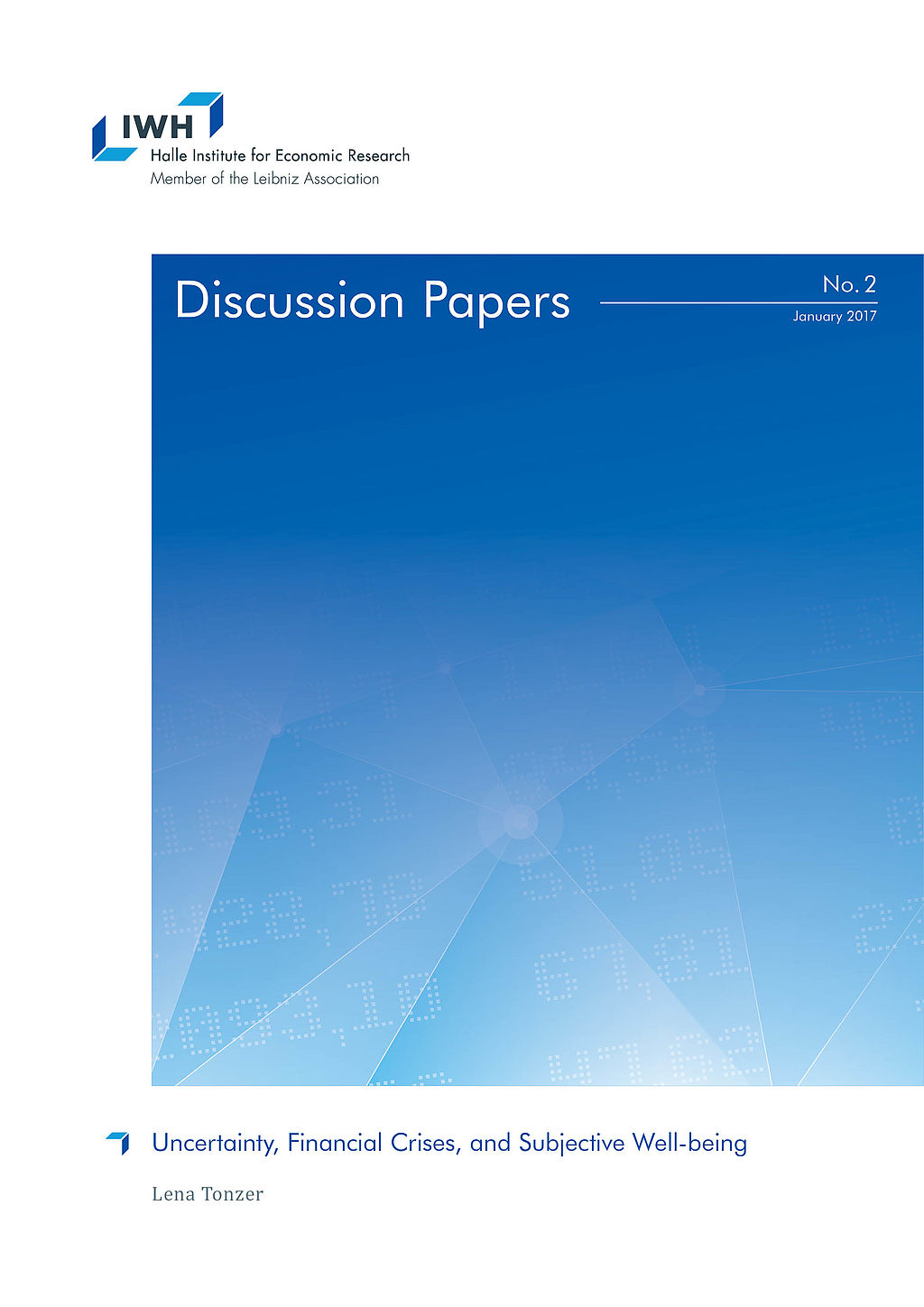
Uncertainty, Financial Crises, and Subjective Well-being
in: IWH Discussion Papers, No. 2, 2017
Abstract
This paper focuses on the effect of uncertainty as reflected by financial market variables on subjective well-being. The analysis is based on Eurobarometer surveys, covering 20 countries over the period from 2000 to 2013. Individuals report lower levels of life satisfaction in times of higher uncertainty approximated by stock market volatility. This effect is heterogeneous across respondents: The probability of being unsatisfied is higher for respondents who are older, less educated, and live in one of the GIIPS countries of the euro area. Furthermore, higher uncertainty in combination with a financial crisis increases the probability of reporting low values of life satisfaction.
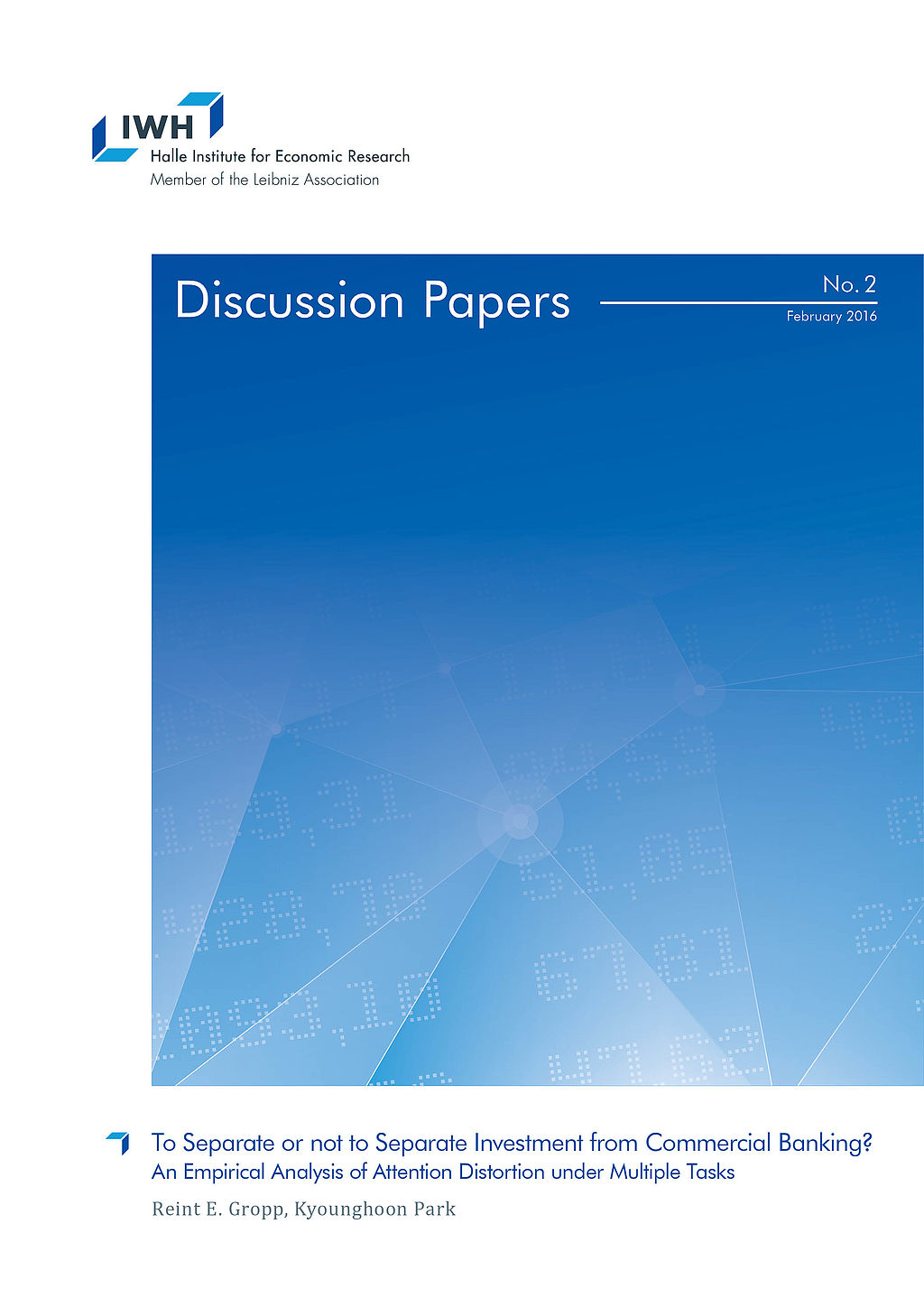
To Separate or not to Separate Investment from Commercial Banking? An Empirical Analysis of Attention Distortion under Multiple Tasks
in: IWH Discussion Papers, No. 2, 2016
Abstract
In the wake of the 2008/2009 financial crisis, a number of policy reports (Vickers, Liikanen, Volcker) proposed to separate investment banking from commercial banking to increase financial stability. This paper empirically examines one theoretical justification for these proposals, namely attention distortion under multiple tasks as in Holmstrom and Milgrom (1991). Universal banks can be viewed as combining two different tasks (investment banking and commercial banking) in the same organization. We estimate pay-performance sensitivities for different segments within universal banks and for pure investment and commercial banks. We show that the pay-performance sensitivity is higher in investment banking than in commercial banking, no matter whether it is organized as part of a universal bank or in a separate institution. Next, the paper shows that relative pay-performance sensitivities of investment and commercial banking are negatively related to the quality of the loan portfolio in universal banks. Depending on the specification, we obtain a reduction in problem loans when investment banking is removed from commercial banks of up to 12 percent. We interpret the evidence to imply that the higher pay-performance sensitivity in investment banking directs the attention of managers away from commercial banking within universal banks, consistent with Holmstrom and Milgrom (1991). Separation of investment banking and commercial banking may indeed be associated with a reduction in risk in commercial banking.














